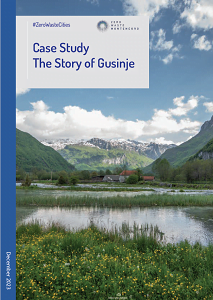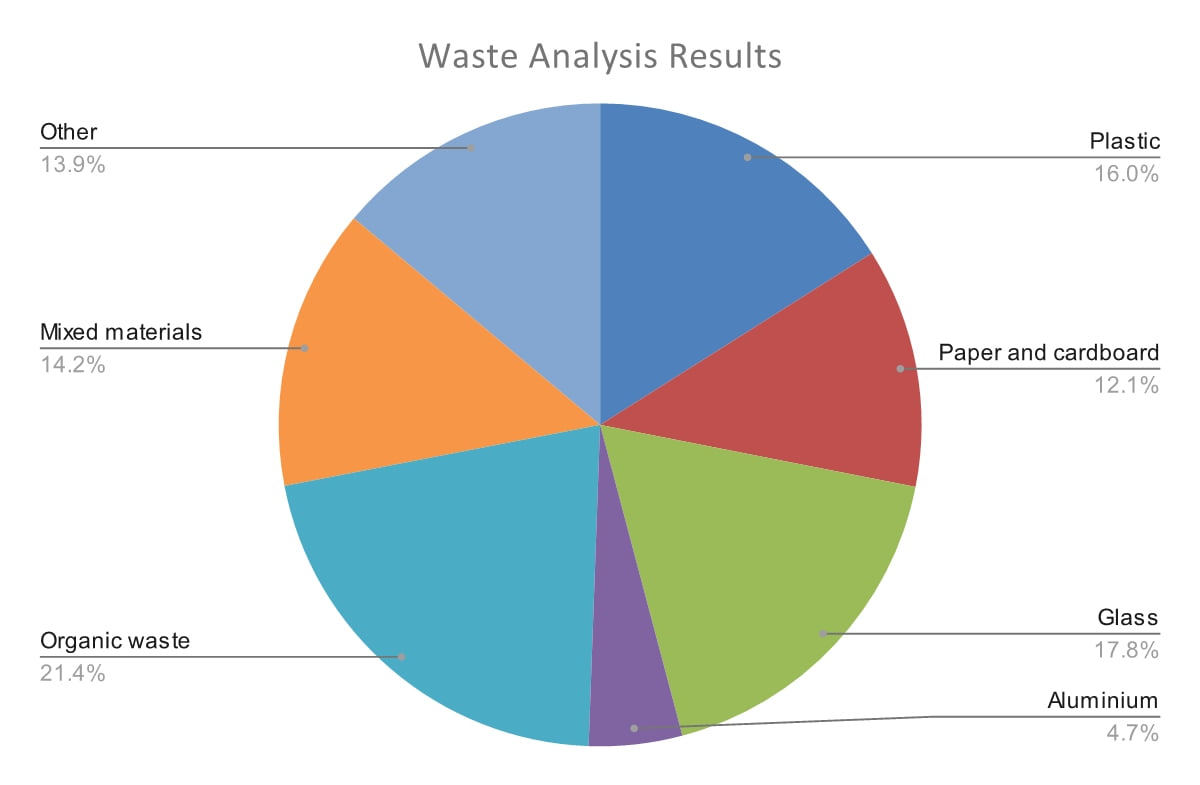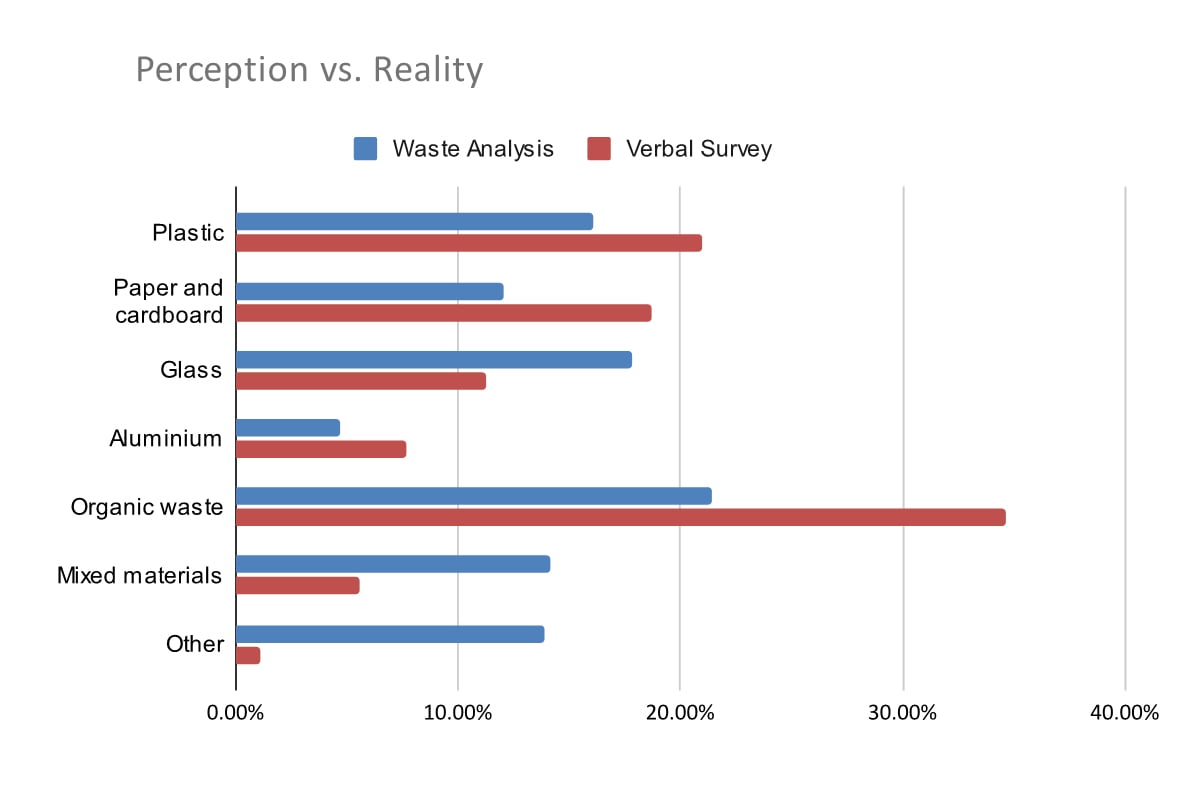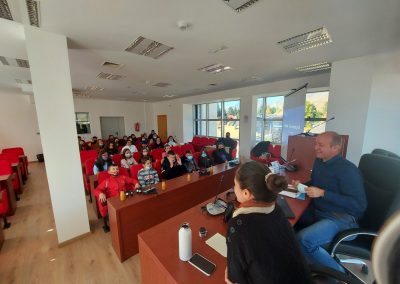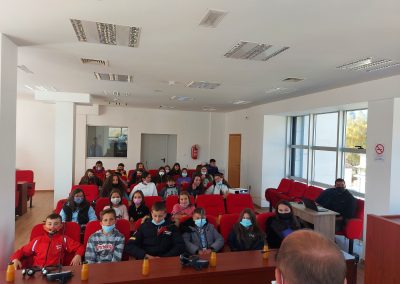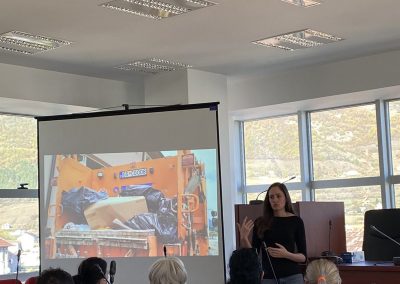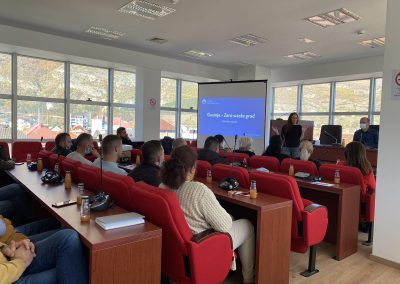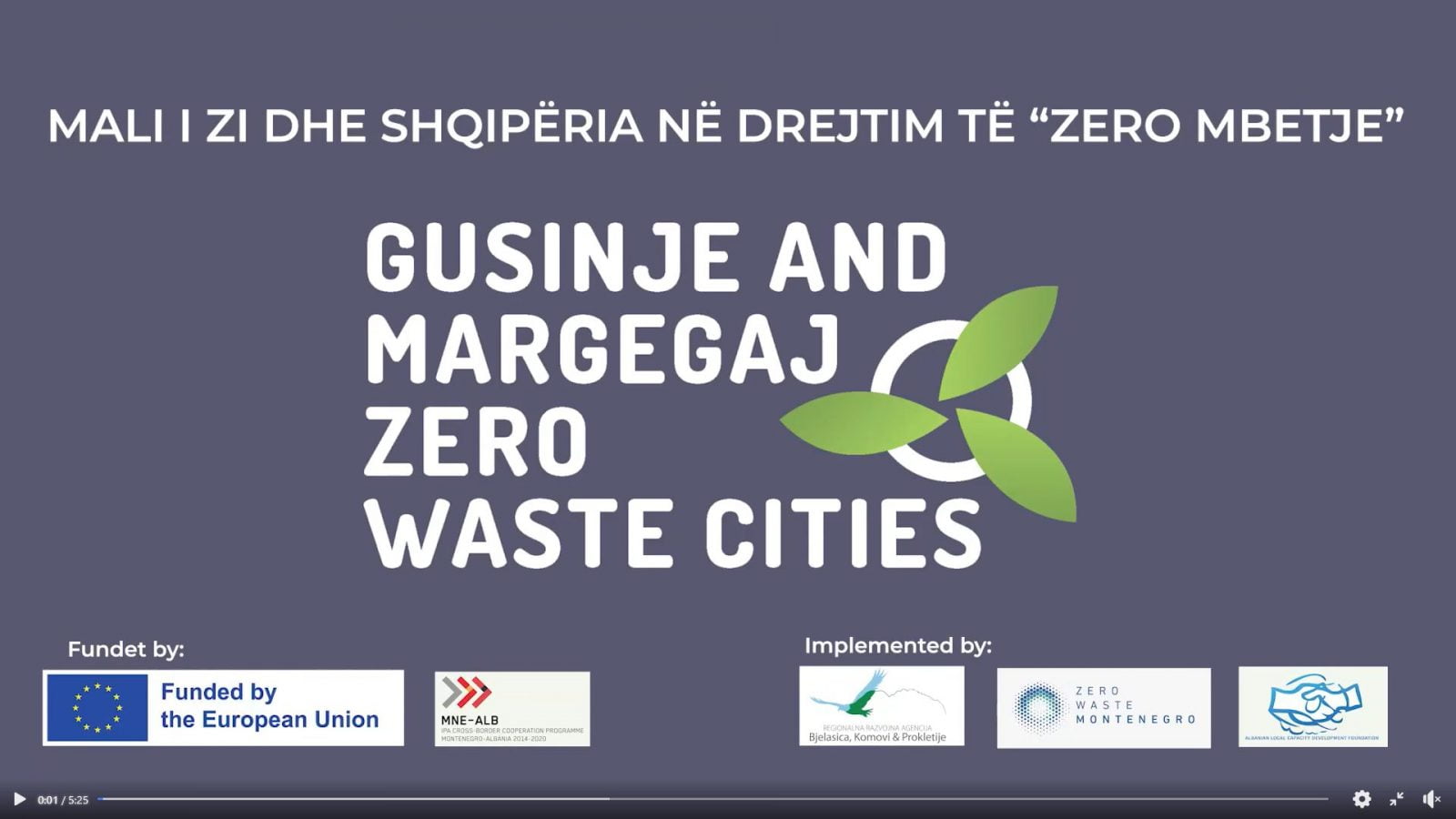ZERO WASTE CITY
Gusinje: First Zero Waste City To-Be In Montenegro
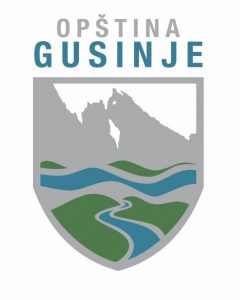
Gusinje has been selected as the pilot city in Montenegro to implement the European Zero Waste Cities Program dedicated to help cities and communities transition towards zero waste. The Programme’s aim is to accelerate the transition towards zero waste at the city level – specifically small and medium-sized municipalities – with the implementation of the latest EU legislation and zero waste strategies based on citizen-centered models, leading to a substantial decrease in waste generation and increase in separate collection and recycling. 400 other municipalities in Europe are currently on the journey to becoming a Zero Waste City. Successful Zero Waste Cities have already achieved over 80% waste diversion to landfill.
WHAT DOES ‘ZERO WASTE’ MEAN?
Zero waste is the conservation of resources by means of responsible production, consumption, reuse and recovery of products, packaging and materials without burning, and with no discharges to land, water or air that threaten the environment or human health.
Zero Waste International Alliance (2019)
HOW DOES THIS AFFECT ME AS A CITIZEN?
Every household has been informed and trained on how to use the new waste management system which is aimed at encouraging citizens to reduce their waste production. Citizens have been asked to sort their waste in different categories at home: organic waste (*), plastics and metal, cardboard and paper, glass and mixed waste, and as well how to inform the Waste Management company when bulky waste needs to be picked up. Secondary material collected will be gathered at the Material Recovery Facility to be recycled.
* The majority of citizens in remote areas received compost bins to do backyard composting while citizens living in the center have their composting waste managed in a municipal composting site.
How to separate waste in Gusinje?
(in Montenegrin only)

PAPER AND CARDBOARD
- Old newspapers
- Office paper
- Cardboard
- Paper packaging
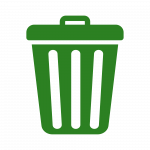
GLASS
- Glass bottles
- Glass jars
- Glass packaging

RESIDUALS
- The waste you didn’t manage to separate

PLASTIC AND METAL
- Clean plastic bottles
- Alu cans
- Metal cans
- PET packaging
- HDPE hard plastics
- LDPE, LLDPE foil
- PP – plastic
- ABS – plastic
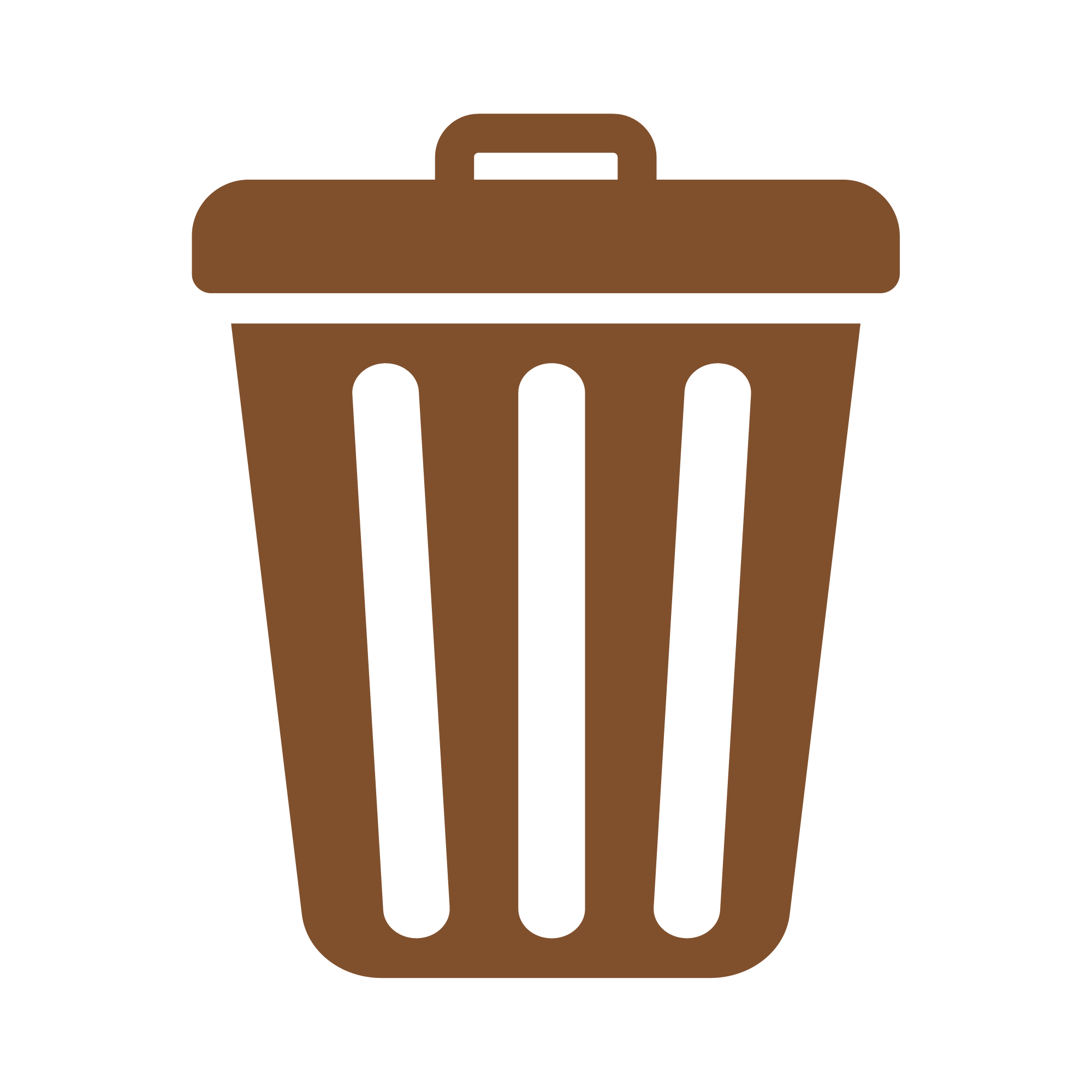
ORGANICS
- Fruit and vegetables
- Eggshells
- Coffee
- Nutshells
- Cut grass
- Leaves
- Chopped branches
- Biodegradable packaging
HOW DOES THIS BENEFIT ME AS A CITIZEN?
The new system provides economic advantages to everyone in the municipality by decreasing waste management costs, creating new green jobs as well as having a positive impact on nature tourism through litter reduction.
WHAT HAPPENED ALREADY?
Zero Waste Advisory Board has been formed with local influential community members. It includes school teachers, business owners, mountain-climbing club, representatives of relative institutions such as waste management, spatial planning, municipality and the Mayor. The board helped the project team to develop the Zero Waste plan and will continue to support the Municipality to understand the local needs.
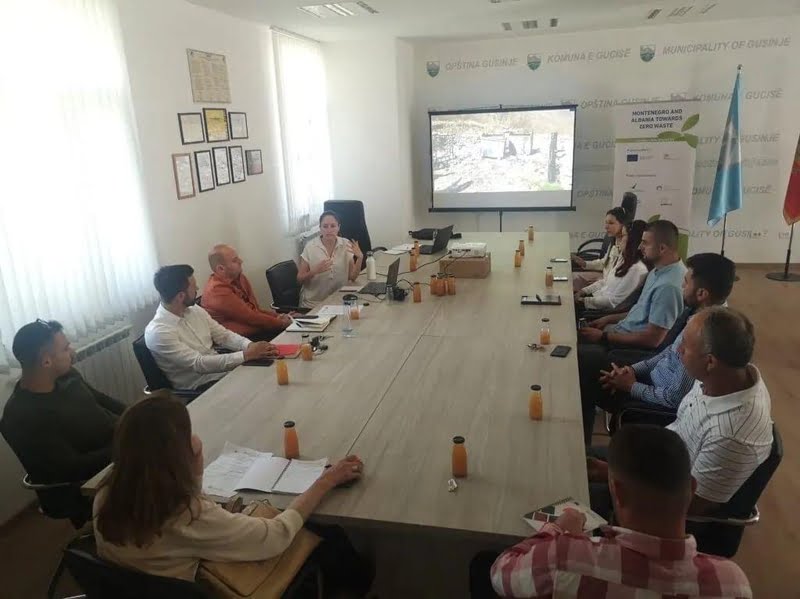
Waste analysis
Waste analysis and the verbal survey have been conducted in order to evaluate the situation in the start of the project and compare it with the end results. Baseline survey results can be found here:
MASTER PLAN
Based on the waste analysis results, a Master Plan has been created, with the help of the Zero Waste Europe expert, in order to provide recommendations for the Municipality (available to other municipalities on request).
Simultaneously, door-to-door waste analysis has been conducted, measuring the amounts of waste generated in homes, as well as businesses, following the Zero Waste Cities Methodology.
Twenty educational workshops on waste reduction have been organized with citizens, to familiarize the citizens with the zero waste hierarchy, prioritizing waste prevention and reuse before recycling.
In June 2022 we’ve distributed 150 composters to households and restaurants who wish to compost, prioritizing remote neighborhoods susceptible to illegal dumping of waste. Citizens and businesses have been educated on food waste prevention and composting. A brochure on home composting has been created in Montenegrin and Albanian language.
Three cleanups have been organized with citizens and kids, in order to raise awareness. Close to one metric tone has been collected.
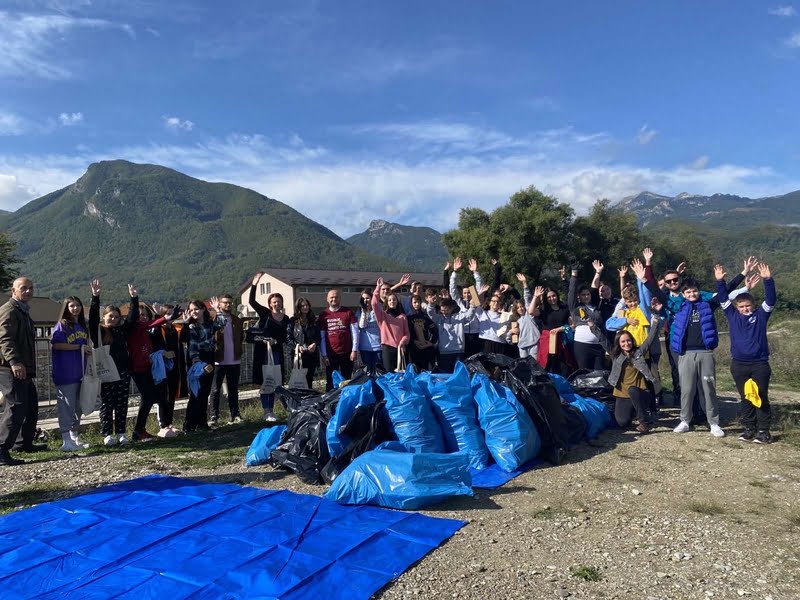
WHAT WILL HAPPEN NEXT?
The Material Recover Facility has been built and the door-to-door separate waste collection system in five waste streams should be fully operation before mid 2024. Municipality will announce announce soon the weekly and monthly pickup schedule.
Frequently Asked Questions
How far can we separate our waste?
Some Zero Waste Municipalities recycle up to 93% of their waste. Gusinje has taken steps towards becoming a Zero Waste Municipality to slowly reach the goals of increased recycling rates.
What about organic waste?
As with every type of waste, the best approach is to follow the zero waste hierarchy of refuse, reduce, reuse and recycle. With organic waste composting represents recycling. Food that is inedible for humans or animals should be composted. Reducing portions in restaurants to avoid food disposal and properly storing food are some of the steps towards prevention.
What about plastic?
Did you know that only 2% of plastic is successfully recycled in the world? There are over nine types of plastic and it is very challenging to recycle. Some types can be used for years, but unfortunately, the most used is the Single Use Plastic. Examples are water or soda bottles, food packaging, and plastic bags etc. Only a few SUP can be recycled, but even recycling them takes energy and water and is expensive. Those ones are mostly HDPE and PET, like most soda, water and cleaning products bottles. Most plastic bags aren’t recyclable as they are made of mixed plastic. The best option is to avoid unnecessary SUP and switch to reusable solutions like tote bag, thermos, reusable razor, soap, bamboo straws etc. If in need, try choosing the recycled and recyclable plastic whenever possible and always try reusing before recycling.
What about glass?
Glass takes a million years to degrade, which means it lasts forever in the environment once disposed. In order to re-melt glass into new containers, a high level of purity and color sorting are required. Mixed or crushed glass is of no use for re-melting and is usually sold much cheaper for use as aggregate, which has no climate benefit. There is a big environmental benefit to recycling glass. By recycling our glass in Gusinje, we are encouraging the glass recycling industry in Montenegro and decreasing our waste in Gusinje. However, recycling should be a last option, as we should try to reuse our glass as much as possible, as it can be easily washed and is much healthier to eat/drink from than plastic.
What about paper and cardboards?
Paper and cardboard are made mostly of wood pulp or cotton. They are also easy to recycle which can help preserve forests. For instance, if we recycle together 6000 tons of paper and cardboard, it will avoid logging 100.000 trees, the consumption of about 3 millions of liters of water and save about 10.000 tons of CO2 going into the atmosphere. Paper can easily be recycled at home as well, which could be a fun project for kids. Please make sure that the paper packaging that you send for recycling has minimal food contamination.
What about metal?
Metals are valuable resources that can easily be recycled. They are also finite resources on our planet, and take lots of energy and water to extract, so reusing and recycling them is very important. Try washing the old tin cans and use them as decor before recycling, or donate the old iron construction to the ones in need.
What about bulk waste?
Currently the Municipality of Gusinje doesn’t have a reuse system for the bulk waste in place, but it is a part of its long-term strategy. In the meantime, before disposing of furniture, clothes, electronic devices and other bulky waste, think about repairing it or repurposing it, but if you no longer want to own it, donate it or sell it online or by other means. If wooden furniture is impossible to reuse, try using it for heating (but be conscious of the toxic paint). Please keep in mind that disposal is the very last resort.
Will it all go to the same truck?
No, a separate truck will collect organic waste from recyclables, which will be collected on different days of the week.
How often will organic waste be collected?
Minimum once a week. In summer it will be collected twice a week.
What about remote areas?
There will be the same pickup schedule for the remote areas, but in some very hard-to-access areas, instead of a door-to-door collection there will be common islands of five large bins for a separate waste collection shared between 10 or less households.
WHO IS IMPLEMENTING THIS PROJECT?
The Regional Development Agency of Bjelasica, Komovi and Prokletije as a lead partner, together with Zero Waste Montenegro [National Zero Waste Cities Coordinator in Montenegro] and in collaboration with the Municipality of Gusinje and the Waste Management Utility Company of Gusinje are working together to bring Gusinje on the path of Zero Waste. However, this mission wouldn’t be possible without the support of citizens and local businesses. The project is financed through the IPA Montenegro-Albania Cross Border Cooperation, it is a 2 years project from February 2021 to January 2023.

